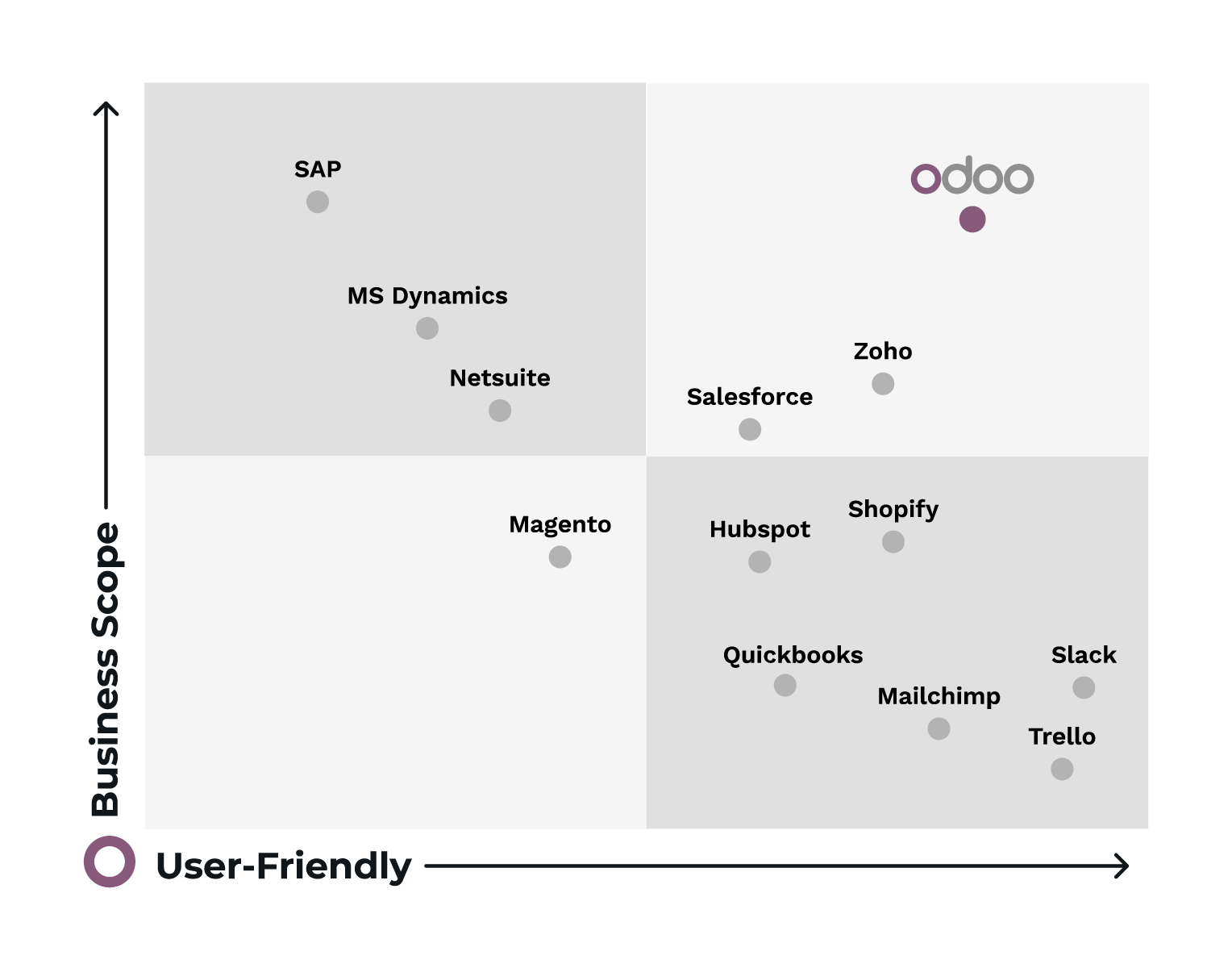![]()
 Financial module
Financial module
An ERP system's core offers real-time financial data, providing a clear view of financial status, better control of daily operations, and more accurate reporting.
ERP Features:
- General ledger
- Accounts receivable & payable
- Accounting reconciliation
- Legal statements
- Bank statements
- Asset, expense & revenue management
- Reporting & analytics
 Sales module
Sales module
Serves as a command center for your sales team, streamlining the sales process, closing more deals, and delivering personalized service experiences to customers across all touchpoints.
ERP Features:
- Sales order processing
- Sales reporting and analytics
- Customer relationship management (CRM)
- Point of sales management
 Purchase module
Purchase module
Simplify the procure-to-pay process by managing supplier relationships, purchase orders, inventory, and invoicing. This ERP module integrates seamlessly with the financial and inventory systems to enhance procurement efficiency and control costs.
ERP Features:
- Purchase request management
- Purchase order management
- Purchase invoicing management
- Vendor management
- Purchase reporting and forecasting
 Inventory module
Inventory module
The ERP Inventory module lowers inventory costs and enhances customer satisfaction by automating workflows and optimizing stock levels across locations and sales channels.
ERP Features:
- Real-time inventory tracking
- Serial/Lot Tracking
- Multi-/warehouse management
- Multi-location management
- Replenishment Management
- Product management & traceability
- Inventory reporting and analytics
- Barcode
 Manufacturing module
Manufacturing module
Streamline and automate your manufacturing process with ERP’s robust manufacturing module. It facilitates resource planning and production scheduling to optimize your production pipeline, lower costs, and enhance supplier relationship management.
ERP Features:
- Order management
- Planning & Scheduling
- Shop Floor
- Quality Control
- Master Data Management
- Product Lifecycle Management (PLM)
- Manufacturing reporting and analytics
 Human Resources module
Human Resources module
The ERP’s human resources module centralizes all HR data into one system, allowing your HR team to efficiently manage employee information, performance, time off, payroll, and expenses. This streamlines processes, saves time, and ensures accuracy and compliance with regulations.
ERP Features:
- Human resource management
- Approval
- Time-off
- Performance
- Documents
- Reporting and analytics
 Services module
Services module
ERP systems offer specialized field service modules equipped with robust process tracking and communication tools, enabling your team to deliver exceptional service and boost customer satisfaction.
ERP Features:
- Task management
- Invoicing
- Communication
- Helpdesk tickets
- Customer Portal
- Reporting
 Website & E-Commerce module
Website & E-Commerce module
Launch your online store with the ERP e-commerce module. Easily create a B2B or B2C website, customize its look and feel with user-friendly tools, add products, integrate payment gateways, and keep inventory information up to date.
ERP Features:
- Website editor
- Multi-website & Multi-store
- Social media and marketing integration
- Customer Portal
- Checkout process management
- Shipping management
- Reporting and analytics









